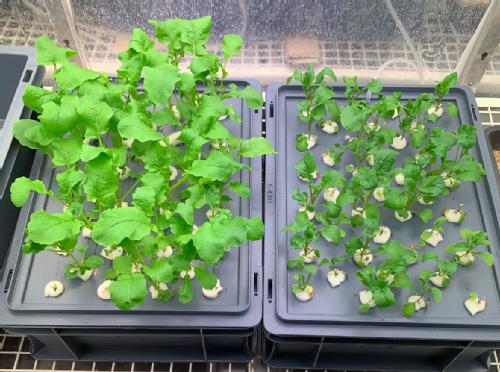Jess Watts

Jess Watts is the 2019 recipient of the Brewster Scholarship, which is awarded to an SLS PhD student in their second year of research whose work relates to crop improvement. The scholarship is funded by a generous donation in memory of Dr Jim Brewster, a former member of Wellesbourne staff.
Project summary
The role of secretion in phosphate uptake in Brassica
Phosphate is an essential macronutrient required for crop growth, however its availability is often a limiting factor hindering crop yield, especially as the majority of phosphate within soil is inaccessible as organic phosphate. Many plants have adapted ways to improve the accessibility of phosphate, such as through the secretion of various compounds into the surrounding soil which help to mobilise the phosphate and improve uptake. I am looking at how Brassica crops which have differing phosphate efficiencies cope with low phosphate conditions compared to high phosphate conditions, with particular interest in the proteomic changes of the roots and the root secretions. If we can pin point what is different about the crops which are efficient in phosphate acquisition during low phosphate conditions, then we can use this to improve the efficiency of crop lines, improving phosphate utilisation and consequently enhance growth.
Brassicas growing in high phosphate conditions (left) and low phosphate conditions (right)

